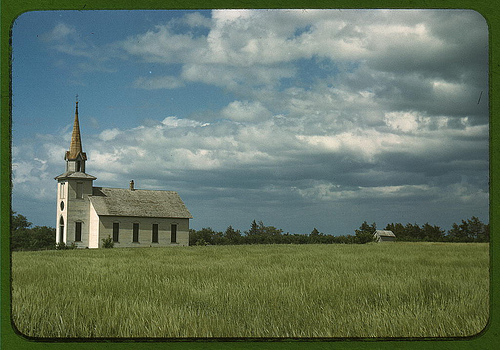In this video, Beau Lotto, founder of art studio and science lab Lottolabs, offers a fun look at optical illusions and how they reflect the evolution of our ability to see. Our vision, argues Lotto, does not show the world as it really is but rather in a way that is most useful. Vision isn’t simply a product of light interacting with our eyes, since light can carry an infinite amount of information, according to Lotto. Rather, our brains have evolved to pick out the information that means the most to us, whether it be the contrast between a predator and the surrounding forest or the light reflected by flowers that contain the best nectar.
(Editor’s Note: Normally, “Science and the Sacred” features an essay from a guest voice in the science and religion dialogue on Fridays.However, this week, our guest feature by Kathryn Applegate was published on Tuesday to provide follow-up to blog posts by Karl Giberson, Darrel Falk, and Bill Dembski. Our guest features will return next Friday.)

